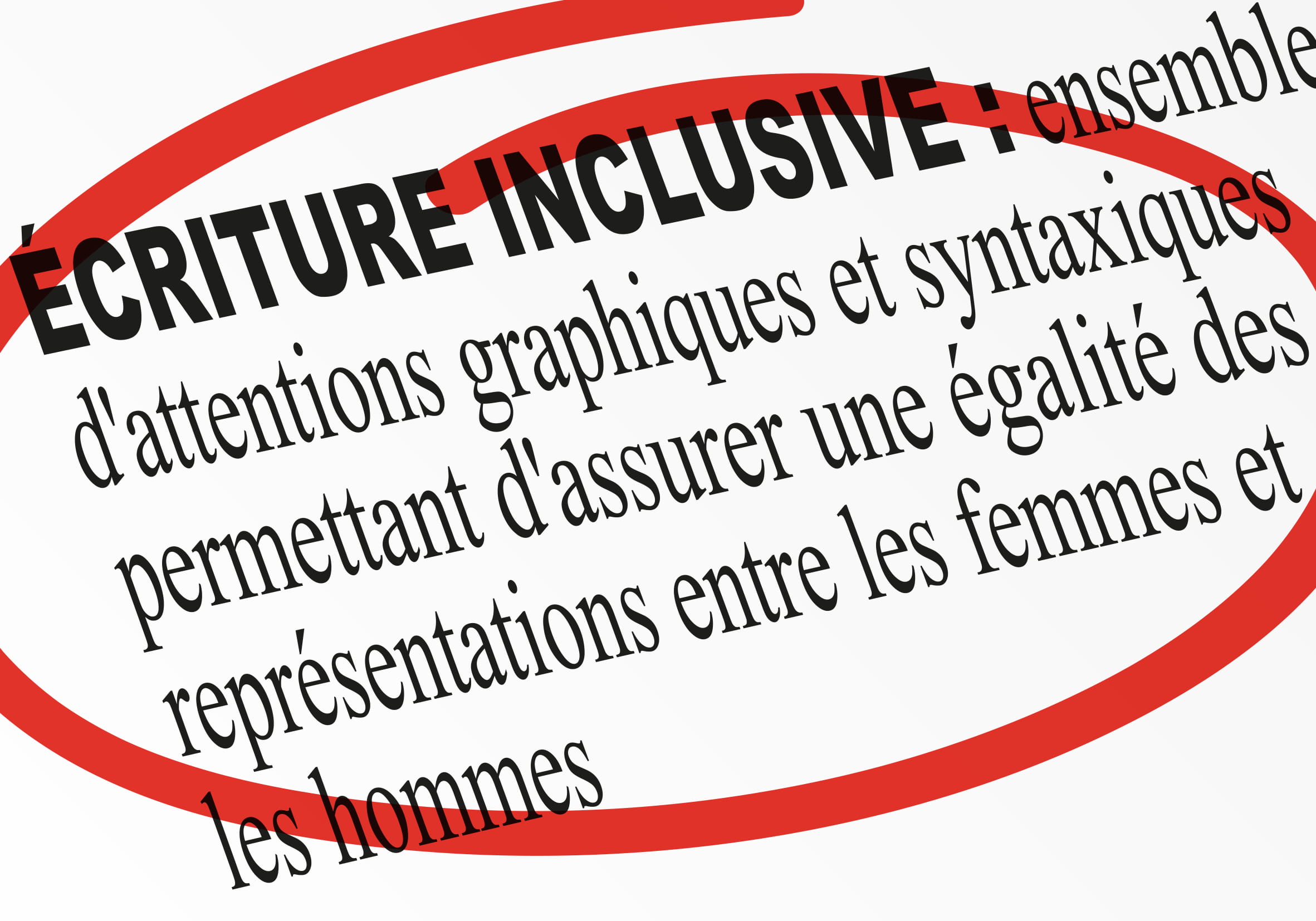If you’ve studied French at school, you might be familiar with the not-so-logical rule that, linguistically, masculine prevails over feminine in the plural form. For instance, if you were to assemble a group of people that included both men and women, you would not use a gender-neutral term like “they”, you’d use the plural form of “he”, “ils”.
Inclusive writing, also known as epicene or neutral language, would not entirely change that. For example, it would be a matter of always including the feminine version of a job title, of including genders in plurals —les auditeur·rice·s— or using the rule of proximity which agrees with the gender of the closest object in the sentence. Still with me so far? Good.
Quite regularly, the subject of gender-neutral style is raised; a recurring demand to at least try and implement changes for a more balanced language.
A quick search on the subject will tell you a few things. Firstly, l’Académie Française, the eminent council on French language — though by no means the ruling authority — has been and remains strongly opposed to these suggestions. Secondly, and more importantly, the prime minister of France Édouard Philippe banned the use of inclusive writing in official texts when the motion was put forward back in November 2017. The main reason for this rejection: “[…] Our administration needs to conform to grammatical and syntaxial rules, especially for intelligibility and clarity of the standards”.
This was yet another significant blow inflicted to an increasingly large number of people requesting for the academy and the government to recognise the need for change. Among the supporters, the High Council for Equality Between Women and Men — who despite being run by the prime minister are at odds with his views — along with the Quebec Board of the French Language both recommend using inclusive writing. The High Council has even published a guide on inclusive writing’s best practices.
But what does that mean exactly? For the francophone content writers out there, how easy is it to choose between ignoring the controversy and simply stick to old rules for the sake of simplicity, or go against the official standardisation and pursue a less masculine-dominant editorial line?
It all depends on who you’re writing for and who your primary audience is. If you have determined the type of French-speaking audience you would like to reach through your offline or online content, where do you start?
There are three main rules for inclusive writing in French. There are 3 rules that are fairly easy to follow. Here’s a mini guide to understanding them:
- Gender agreement for jobs, duties, statuses, and titles.
- Examples: la professeure (‘the teacher’), la directrice (‘the manager’), la developpeuse (‘the developer’)
- Including both feminine and masculine form in plural with middots, floating dots separating the declinations:
- For ‘the readers’, we would use les lectreur·ice·s which, decomposed, is the juxtaposition of the singular masculine, singular feminine, and plural forms of ‘reader’
- Avoiding using the capitalised form of Man when designating the human race.
These are just a few of the suggested tweaks. Implementing these editorial rules could allow you to test the impact on your audience’s online behaviour towards your brand. Aligning your content for each stage of your customer’s journey is something to try if you decide to take a step towards a more gender-neutral voice.
While this writing form used to be a bold statement, now many popular online publications have adopted it as a standardised way of writing. Not everyone is happy about this change, and old habits die hard. Could it be the beginning of a radical evolution of the French language? Affaire à suivre.



